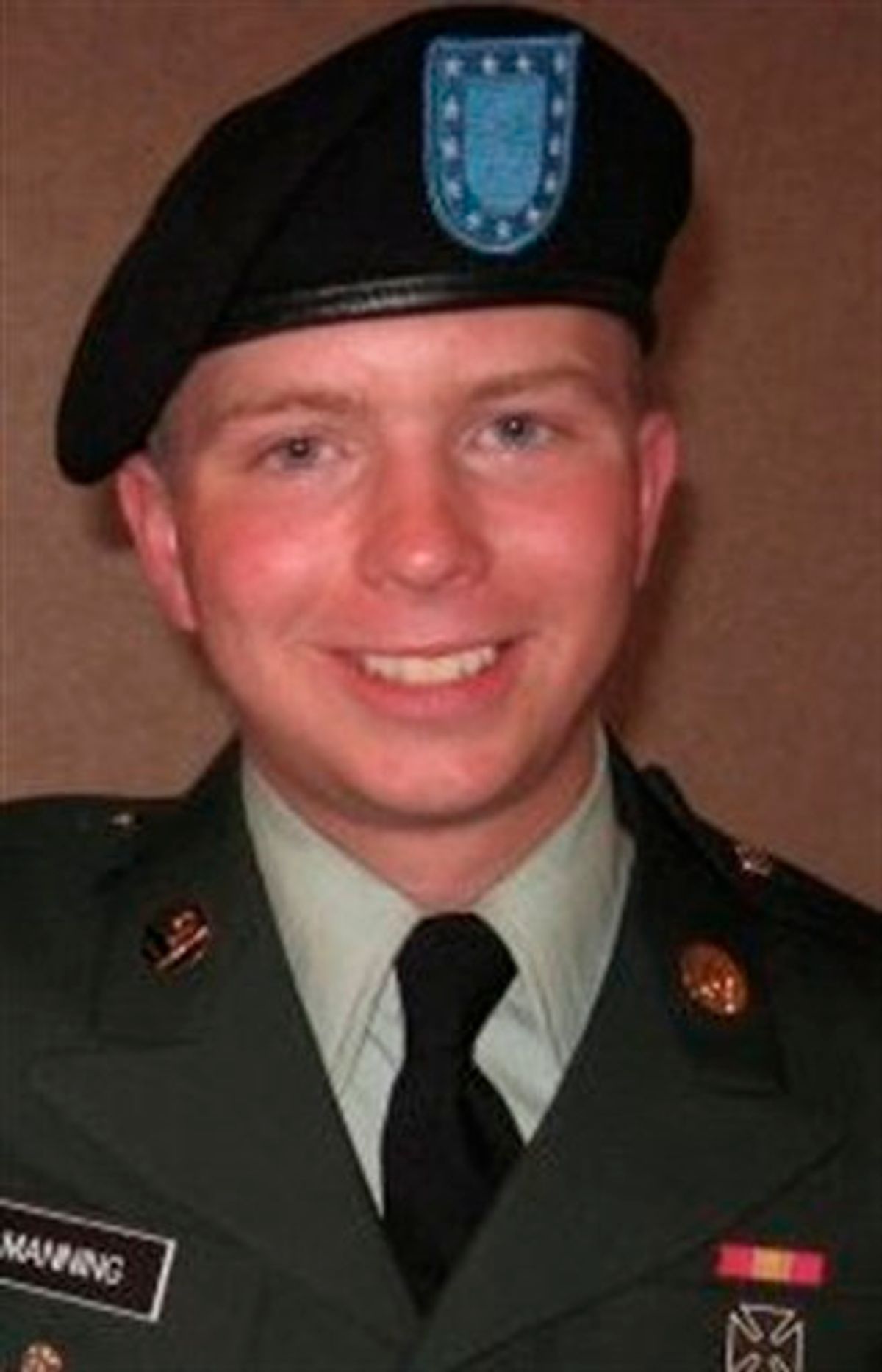(UPDATED BELOW)
Will the harsh treatment of Bradley Manning dissuade would-be leakers in the military from releasing information that may be of public interest?
Supporters of Manning as well as outside observers of the case say the extraordinary conditions of his confinement as well as the length of time that Manning has been held without being convicted of anything could weigh heavily on any person mulling a conscience-driven leak.
“Bradley’s treatment has been extreme. There was no reason for it other than to tell other soldiers, ‘If you do something like this, we’re going to ruin you.’” says Jeff Paterson, co-founder of the Bradley Manning Support Network, which is helping Manning as he fights charges of leaking a trove of classified materials to WikiLeaks.
“Both sides of the case are looking at that big picture,” Paterson adds. “They need to publicly string up Bradley because data security isn’t getting any better.”
Manning was held for 10 months in solitary confinement in the Marine Corps Brig at Quantico, Virginia, following his arrest in Iraq in May 2010. His detention has also included periods of forced nudity, which the military justified by labeling him a suicide risk.
Eugene Fidell, who teaches military justice at Yale Law School and has been in the field for over 40 years, told me he could not remember another case in which there had been such a large period of time between pretrial confinement and the opening of the preliminary hearing that kicked off for Manning last week. "This is really an amazingly long delay,” Fidell said.
“Do I think the government’s interest in deterrence is served in this case? Sure," Fidell said. "On the other hand, the government is in no way allergic to prosecuting cases involving mishandling of classified materials. There's a pervasive regulatory framework for handling classified information, with a lot of scary consequences they warn soldiers about."
Army public affairs, which has set up an entire email account to deal with inquiries on the Manning case, did not immediately respond to a request for comment.
In the end, says Steven Aftergood, a government secrecy expert at the Federation of American Scientists, it may not matter what the intentions of the government are in this case.
“Whether by design or not, the handling of this case does send a message that the treatment of suspected leakers will be harsh and unforgiving,” he said.
UPDATE 12/21/11: An Army spokesperson sends over this statement: "Pfc. Manning has been held in accordance with Army Regulation 190-47. Any specific questions regarding his confinement conditions should be referred to the Midwest Joint Regional Confinement Facility."



Shares